Collecting seaweed from beaches in cold temperatures
By DA NANG Today / DA NANG Today
December 16, 2019, 22:09 [GMT+7]
Residents in Da Nang and Quang Nam Province have long been accustomed to collecting edible seaweed (sargassum henslowianum) growing abundantly around rock pools. This ‘natural gift’ has created a source of food and extra income for residents. Seaweed grows in the spring, summer and winter, but that which grows during the winter is considered the tastiest. The plants have a pleasant smell, are about a hand length (10 centimetres) and of a bluish black.
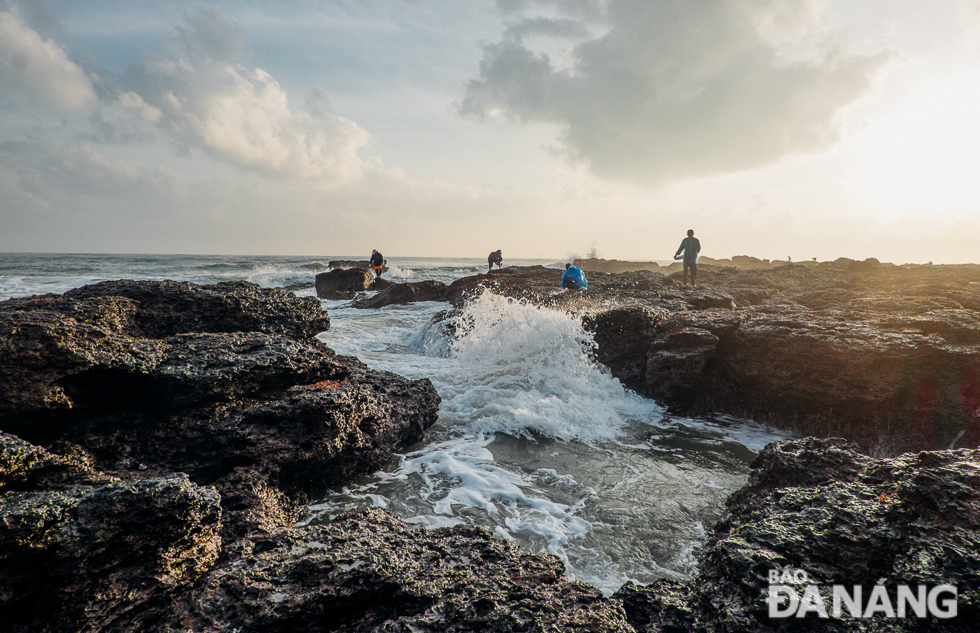 |
| With a smooth texture and pleasant smell, the seaweed is often considered a type of vegetable and used to cook soup. It tastes salty at first and leaves a light sweet aftertaste as it is chewed. Seaweed grows on rocks located along many beaches such as Nam O and Bai Rang in Da Nang, and Tam Hai in the neighbouring province of Quang Nam. |
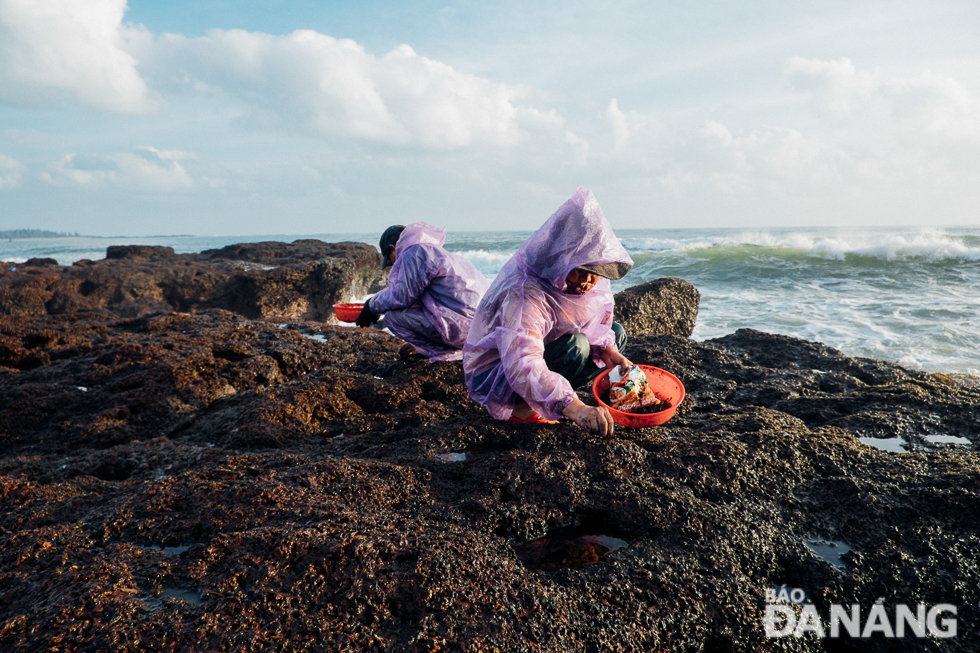 |
| The seaweed harvest lasts several months, from the 10th lunar month into Tet. Each harvester carries a set of equipment to collect the seaweed, consisting of a small basket, a spoon, and half a bottle of ash. |
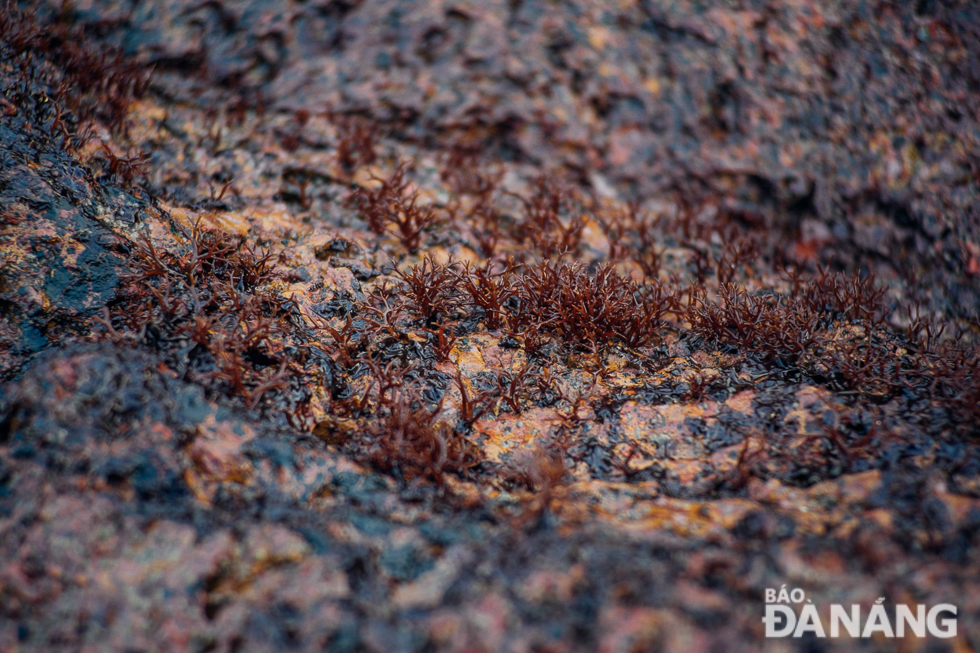 |
| The seaweed has a high economic value. To get the seaweed, the harvesters sprinkle a layer of ash to make it less slippery, and then use spoons to scrape the strands from the rocks. The more experienced harvesters prefer pulling them out by hand to avoid breaking them off. |
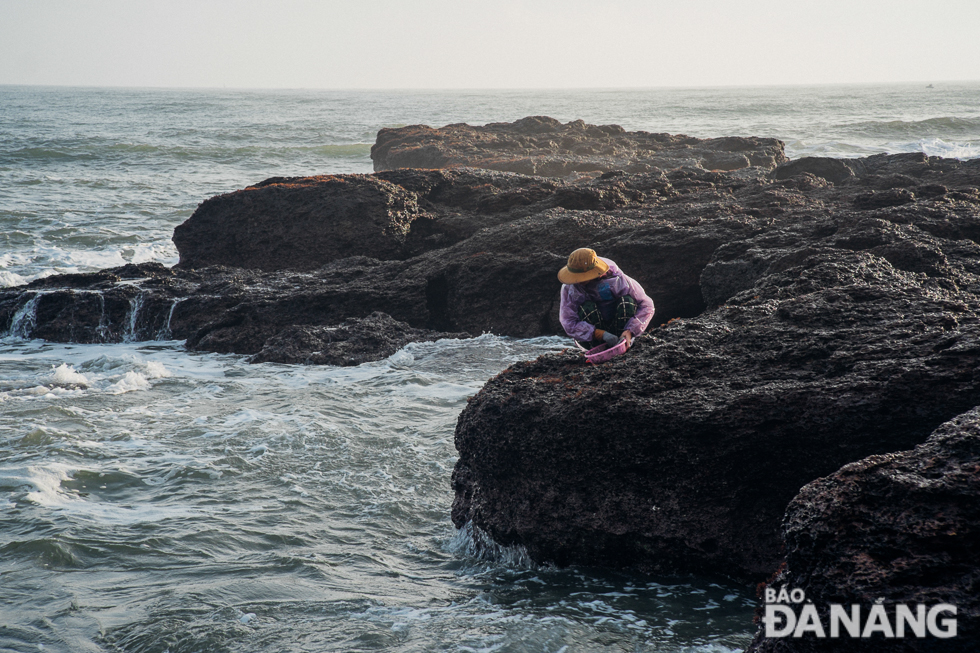 |
| Collectors must exercise extreme caution whilst collecting seaweed clinging onto wet and slippery rock cliffs. In fact, it is not easy trying to balance on the slippery rocks and harvesting the seaweed, despite the thick sandals. The harvesters’ toes all turn red from holding on to the rocks as they sit in a squatting position to look for the plants. The seaweed should be harvested as soon as possible, otherwise they will turn into tasteless leaves. |
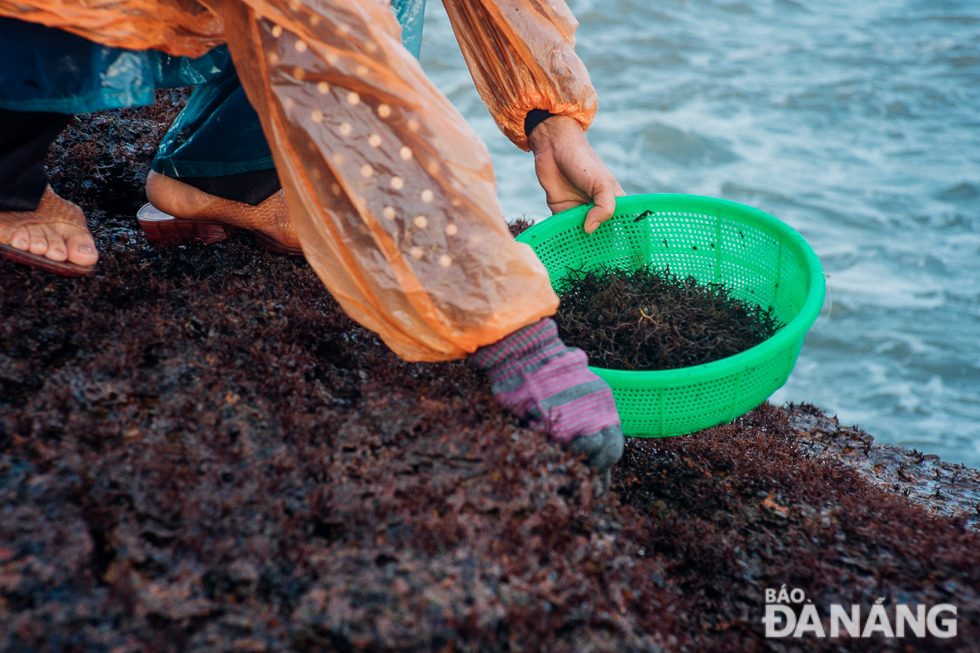 |
| The price of seaweed is relatively high at the start of the collection season, but it decreases afterwards. At the beginning of the season, the price per kg is 200,000 VND – 350,000 VND. |
 |
| Despite hardships, even once having escaped death by a hair’s breadth, harvesters insist on keeping the job, and go looking for seaweed even in bad weather conditions. |
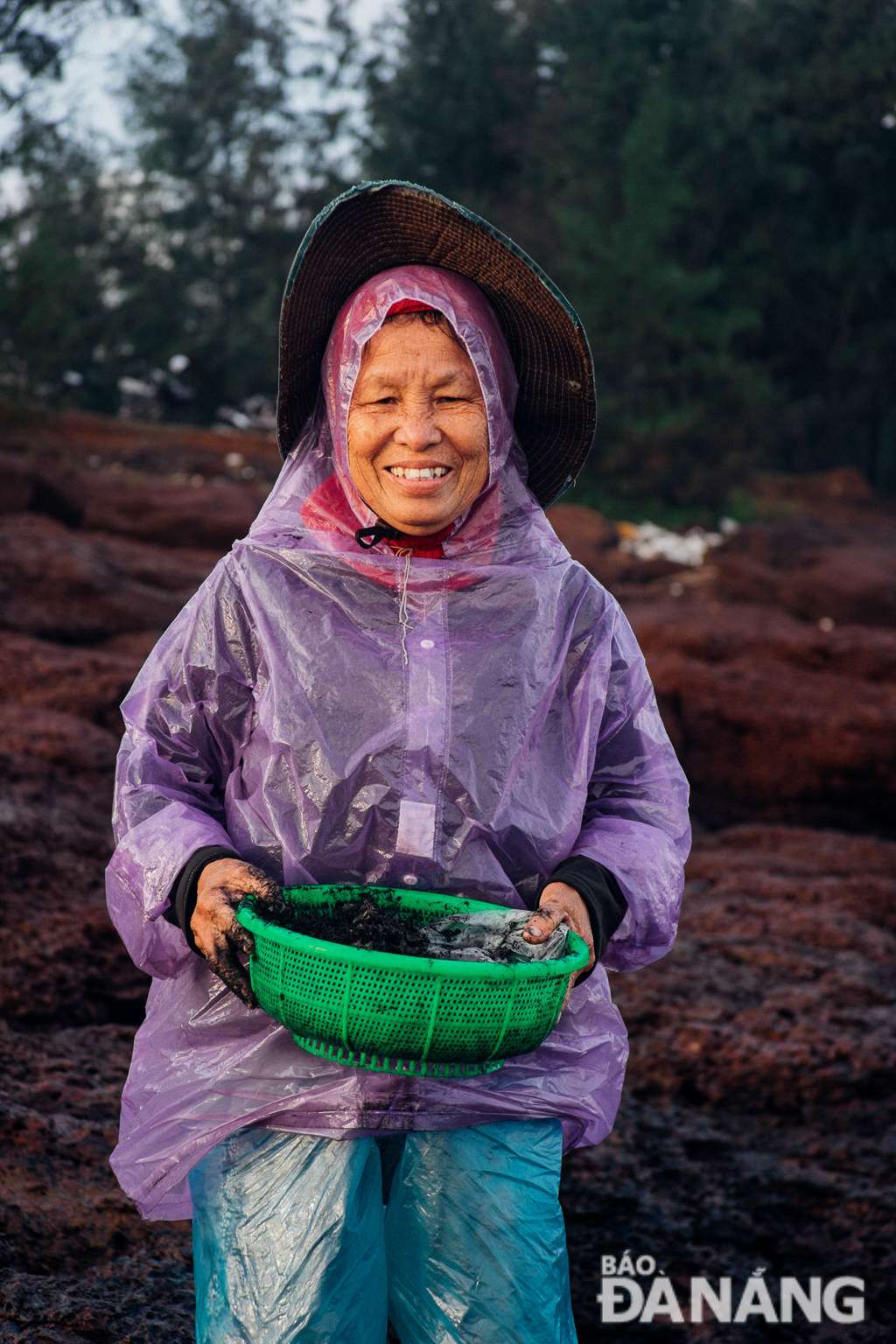 |
| A female harvester is happy with a basket full of seaweed |
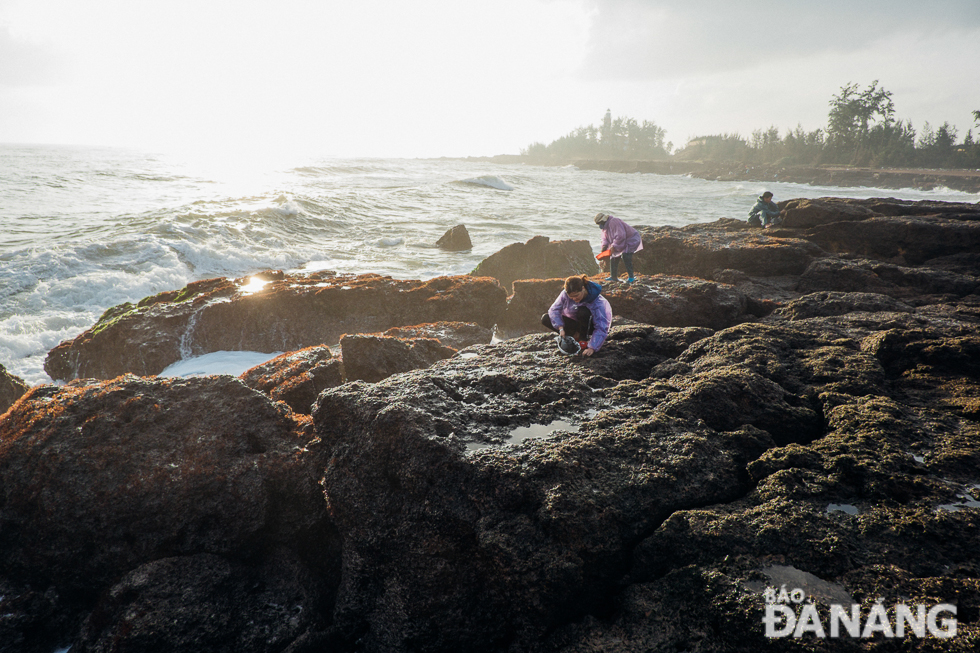 |
| Harvesting this ‘natural gift’ helps to bring extra income to local residents despite the hardship and danger facing them |
By NGUYEN LE- Translated by ANH THU
.
.







